Many car owners don’t think about oxygen sensors until it’s time to replace them. But selecting the right replacement oxygen sensor can make a huge difference in terms of vehicle performance, efficiency, and lifespan. In this blog post, we take an in-depth look at the two main brands of automotive oxygen sensors: Bosch and Denso. After considering price, quality materials used, and customer satisfaction ratings for both brands, you’ll know which is ultimately better for your own needs – Bosch or Denso? Let’s start!
Engine Performance and Emissions Control
Oxygen sensors are one of the key components in managing engine emissions and performance. As such, they play an integral role in maximizing fuel economy, reducing harmful exhaust gasses that contribute to air pollution, and helping to ensure optimal engine operation.
Performance-wise, oxygen sensors help engines maintain their proper air-fuel ratio levels by informing the computer of how much oxygen is present in the exhaust gas. This allows for a more efficient combustion process, which translates into increased power and improved fuel economy.
A good quality oxygen sensor is essential for optimal engine performance and emissions control. By providing accurate information about the air-fuel ratio levels, oxygen sensors help ensure that engines are running as efficiently as possible while minimizing emissions of harmful gasses. Furthermore, oxygen sensors can help extend the life of an engine by reducing wear and tear on its components caused by inefficient combustion. [1]
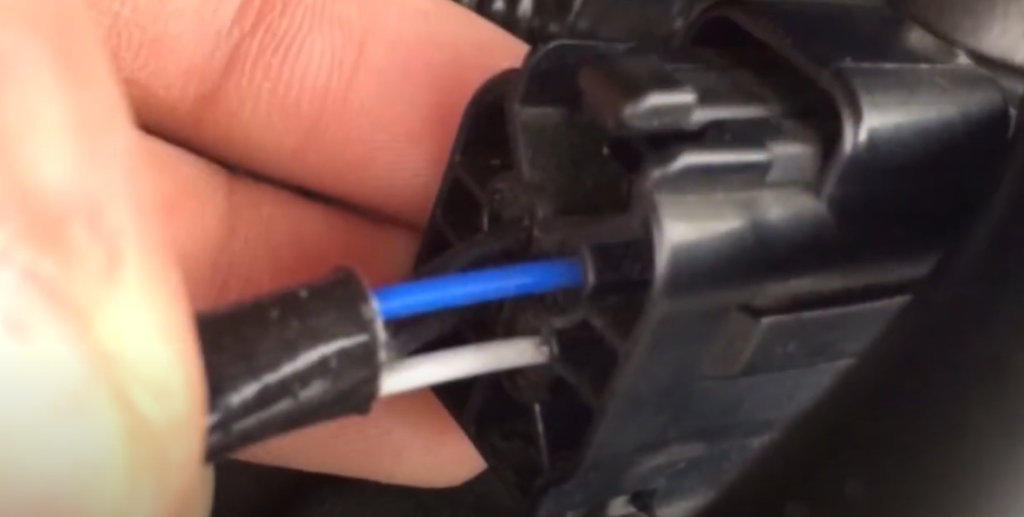
What is an Oxygen Sensor?
An oxygen sensor (also known as a lambda sensor or an O2 sensor) is a vital part of the engine management system in many modern cars. It measures the amount of oxygen present in the exhaust gasses, which can be used to adjust fuel and air mix being fed into the engine for maximum efficiency. The oxygen sensor helps maintain optimal performance while reducing emissions and improving fuel economy. It is considered an essential component of the exhaust system, as it helps keep emissions at acceptable levels and can help diagnose engine problems when something isn’t working correctly. Oxygen sensors are usually located in the exhaust manifold, near the catalytic converter. [2]
What Types of Oxygen Sensors Are Available?
When choosing an oxygen sensor for your car, there are several types to consider.
The most common type is the zirconia (zirconium dioxide) oxygen sensor, which uses a ceramic-based element. It has good accuracy and sensitivity in measuring oxygen levels, but its life span is typically shorter than other types.
The second is the titania (titanium oxide) sensor. It has a higher accuracy range than zirconia sensors and it’s known to last longer as well. The downside to this type of sensor is that it costs more.
The third is the paramagnetic oxygen sensor. This type of sensor uses a magnetized material to measure oxygen levels. It is known for its superior accuracy and long life span, so it is often used in vehicles that require higher accuracy readings, such as those that have diesel engines.
You can also opt for an infrared oxygen sensor. This type of sensor uses an infrared light to measure the oxygen levels in your engine’s exhaust system. It is a good choice for those who want quick results but not necessarily high accuracy readings. [3]
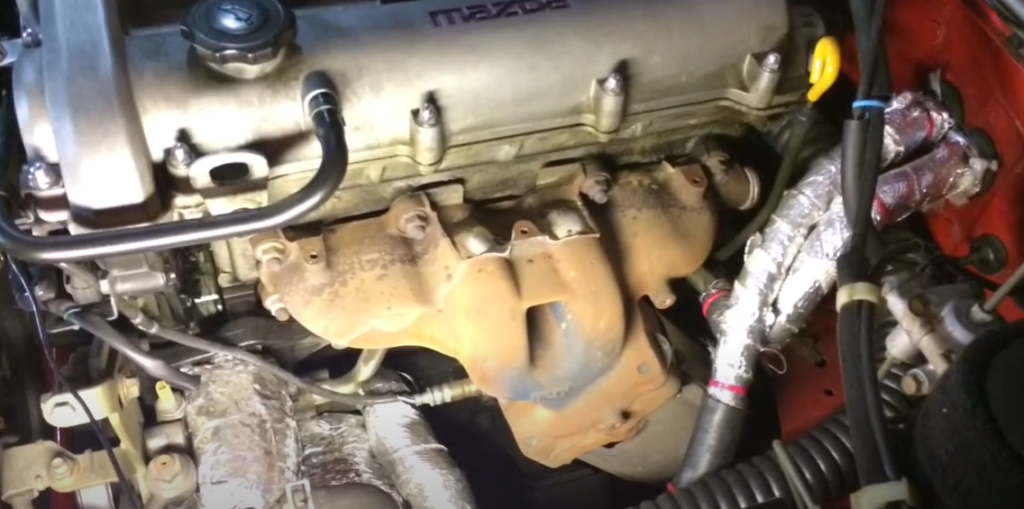
How to Choose the Right Oxygen Sensor?
The oxygen sensor is an essential component of any vehicle’s emissions system. It monitors the amount of oxygen in the exhaust fumes and helps maintain a good balance for improved fuel economy and reduced emissions. Choosing the right oxygen sensor for your car is important to ensure optimum performance, reliability, and longevity. [4]
When selecting an oxygen sensor, there are several factors that need to be taken into account. The most important factor is the type of sensor that your vehicle requires, as they come in two varieties: wide-band and narrow-band oxygen sensors. Wide-band oxygen sensors respond more quickly to changes in exhaust gas composition, while narrow-band sensors are simpler and less expensive.
It is also important to consider the cost of the oxygen sensor, as prices can vary widely depending on quality and brand. When it comes to selecting an oxygen sensor, it’s best to opt for one that has a proven track record of reliability and longevity. Doing some research ahead of time can help you make a more informed decision and get the best value for your money.
The first major feature to consider when comparing oxygen sensors is their accuracy. A sensor’s accuracy can have a major impact on how well it performs in different conditions, including both low and high temperatures. Higher-quality sensors tend to be more accurate, providing better readings for engine performance and fuel efficiency.
The next important factor to consider is the temperature range of the sensor. Different types of sensors are designed to handle different temperatures; for instance, some sensors can withstand higher temperatures and may be better suited for high performance engines. On the other hand, lower-quality sensors might not perform as well in hotter conditions.
Finally, you’ll want to think about the longevity of a sensor. The more durable a sensor is, the longer it can last in your vehicle without needing to be replaced. This can help you save money in the long run, as you won’t need to pay for frequent replacements.
If you’re not sure which sensor to choose or have any other questions about oxygen sensors in general, it is always a good idea to consult with a professional mechanic or automotive technician. Doing so can help ensure that you get the right product for your car and avoid costly mistakes. [5]
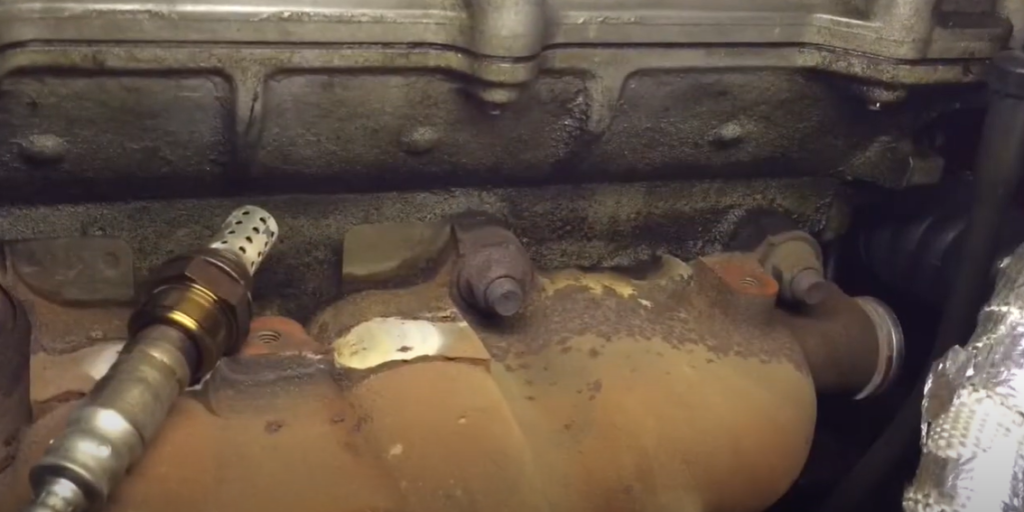
What are the Peculiarities of Bosch Oxygen Sensors?
Bosch oxygen sensors are a popular choice when it comes to vehicle engine performance. The Bosch oxygen sensor measures the amount of oxygen in the exhaust system of your vehicle, which helps maximize fuel efficiency and reduce emissions. With this information, the ECU can adjust air-fuel ratios accordingly for optimal performance.
One of the key features of Bosch oxygen sensors is their ability to respond quickly. The sensor reacts almost instantly when the air-fuel mixture changes, and adjusts the readings accordingly. This ensures that your engine runs at its highest efficiency.
Another great feature of Bosch sensors is their durability. They are designed to last up to 150,000 miles or more, making them a great long-term investment. Additionally, they are designed to be resistant to corrosion and extreme temperatures, making them perfect for all types of weather conditions.
Finally, these sensors come with a wide range of options and price points. This makes it easy to find the right option that fits your needs and budget. [6]
Pros & Cons of Bosch Oxygen Sensors
Bosch oxygen sensors are a popular choice when it comes to automotive maintenance. They’re reliable, relatively affordable, and easy to install. But while Bosch oxygen sensors have many advantages, they also come with some potential drawbacks. Here’s an overview of the pros and cons of using Bosch oxygen sensors in your vehicle:
Pros:
- Designed for maximum efficiency and accuracy: Bosch oxygen sensors are designed to provide precise readings, helping to ensure that your vehicle is always running at optimal performance levels.
- Easy installation: Most Bosch oxygen sensors can be easily installed in less than an hour, allowing you to get back on the road quickly without having to take your car into a garage.
- High quality: Bosch oxygen sensors are made from high-quality materials and are designed to last for many years.
Cons:
- Pricey: Bosch oxygen sensors tend to be more expensive than other brands, so if you’re on a budget they may not be the best option for you.
- Compatibility issues: They may not be compatible with some vehicle models, so make sure to check if your car is supported before buying one.
- Limited options: Bosch currently offers only a limited selection of oxygen sensor types and sizes, so you may have difficulty finding the right one for your application. [7]
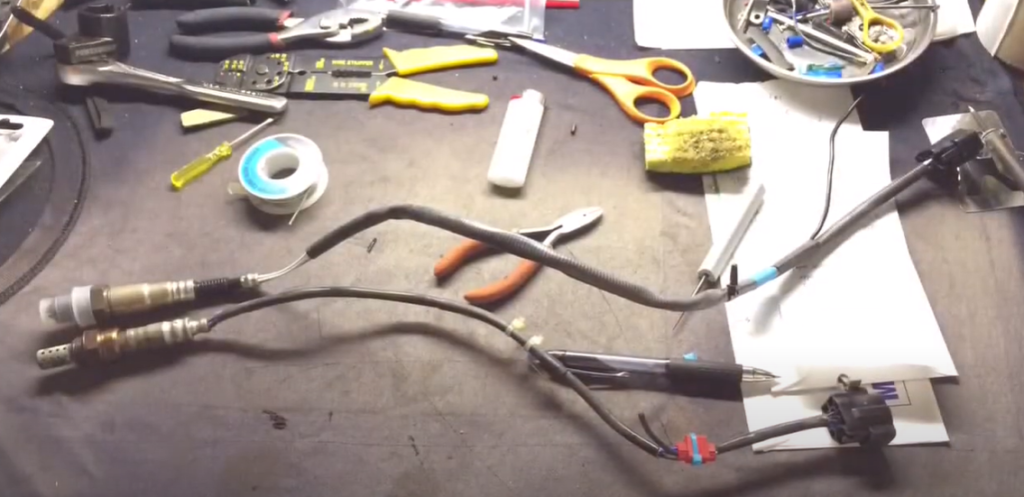
What are Denso Oxygen Sensors?
Denso oxygen sensors are used in a variety of automotive and industrial applications. They work by measuring the amount of oxygen present in the exhaust gas, allowing the engine to adjust its fuel-air mixture for optimal efficiency and performance. Denso’s wide range of oxygen sensor technologies offer high levels of precision and reliability.
These sensors use a combination of electrical and mechanical components to measure the amount of oxygen present in the exhaust system. It consists of two chambers separated by a porous ceramic element. When combustible fuel is burned, some of the oxygen molecules are converted into carbon dioxide which causes a reaction on the surface of the ceramic element. This reaction produces an electrical voltage that is sent to the vehicle’s ECU. The ECU then uses this information to adjust the fuel-air mixture as needed for optimal performance. [8]
Pros & Cons of Denso Oxygen Sensors
When it comes to oxygen sensors, Denso offers an efficient and reliable option for your car or truck. With a wide range of models to choose from, you can find the right one for your engine type. Let’s take a look at some of the pros and cons of Denso oxygen sensors:
Pros:
- Optimized and precise control of the air/fuel ratio for improved engine performance.
- Wide range of models to choose from, making it more likely you’ll find the right one for your engine type.
- Easy installation with no complicated wiring or extra parts required.
- Durable construction that can withstand extreme temperatures and harsh conditions.
- Long life expectancy of up to 200,000 miles.
Cons:
- Some models may not be compatible with some older vehicles, so it is important to check the compatibility before purchasing.
- Replacement parts can be expensive and hard to find in some areas.
- Installation can be a bit tricky and time consuming, so it is best to consult a professional mechanic for help.
- It can be difficult to determine the exact type of oxygen sensor that you need if your vehicle’s engine has been modified or changed. [9]
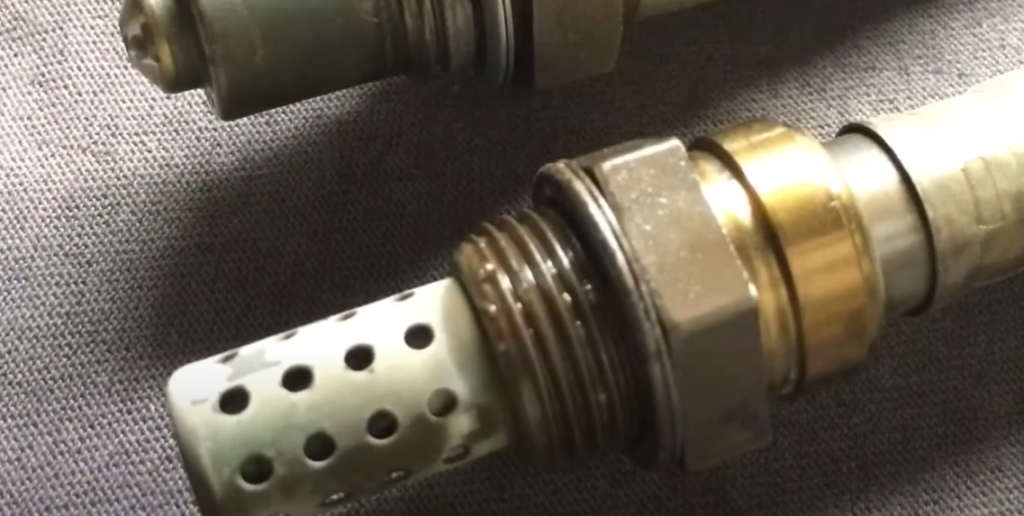
Bosch Vs. Denso Oxygen Sensors: Key Differences
When it comes to oxygen sensors, you need to consider two of the major players in the industry: Bosch and Denso. Both brands offer excellent quality oxygen sensors that are designed to last for many miles. However, there are some key differences between these two manufacturers, which are important to note when selecting the right oxygen sensor for your car.
When it comes to price, Bosch oxygen sensors are generally cheaper than Denso oxygen sensors. This means that if you’re looking for a good quality oxygen sensor at an affordable price, then Bosch may be the better option. However, keep in mind that cost is not always indicative of quality, and Denso offers some excellent options as well.
Another major difference between Bosch and Denso oxygen sensors is the installation process. Bosch oxygen sensors are designed to be easy for DIY mechanics to install, while Denso’s sensors require more experience and skill to properly install. Therefore, if you’re not an experienced mechanic, then you may want to opt for a Bosch sensor instead.
It’s crucial to consider all these factors when selecting an oxygen sensor for your car. Bosch and Denso both offer excellent quality options that will work well for most vehicles. Ultimately, the best choice depends on your budget, desired lifespan, and installation skill level. Do your research and compare them side-by-side to make the most informed decision.
And remember, always follow the manufacturer’s instructions and use authentic parts to ensure optimal performance of your oxygen sensor! That way, you can be sure that your car is running as efficiently as possible. With the right maintenance, your oxygen sensor should last for many miles to come. [10]
How Often Should Oxygen Sensors Be Replaced?
Oxygen sensors are an important part of any modern vehicle’s engine control system. Without them, the air-fuel mixture being fed into the engine may become unbalanced, leading to a decrease in performance and fuel efficiency. As such, it is important to keep your oxygen sensors functioning properly and replace them when necessary.
The exact lifespan of an oxygen sensor varies from vehicle to vehicle, but a good rule of thumb is that they should be replaced every 60,000 to 90,000 miles. This number can change depending on driving habits (such as heavy idling or frequent stop-and-go traffic) and the type of fuel being used. It’s best to consult your vehicle manufacturer for specific recommendations on when to replace them.
For drivers who want to get the most out of their vehicle, regular maintenance and inspection is key. Make sure that your oxygen sensor is checked at every oil change or tune-up, as this can help ensure that it remains in top condition for longer. If you notice any decreased performance from your vehicle’s engine, it may be time to check the oxygen sensor, as it could be causing an imbalance in the air-fuel mixture.
Ultimately, whether you choose to replace your oxygen sensors every 60,000 miles or wait until they fail depends on your budget and how often you use your vehicle. If you keep up with regular maintenance and inspections though, it should help extend the life of the sensor and keep your engine running smoothly. [11]
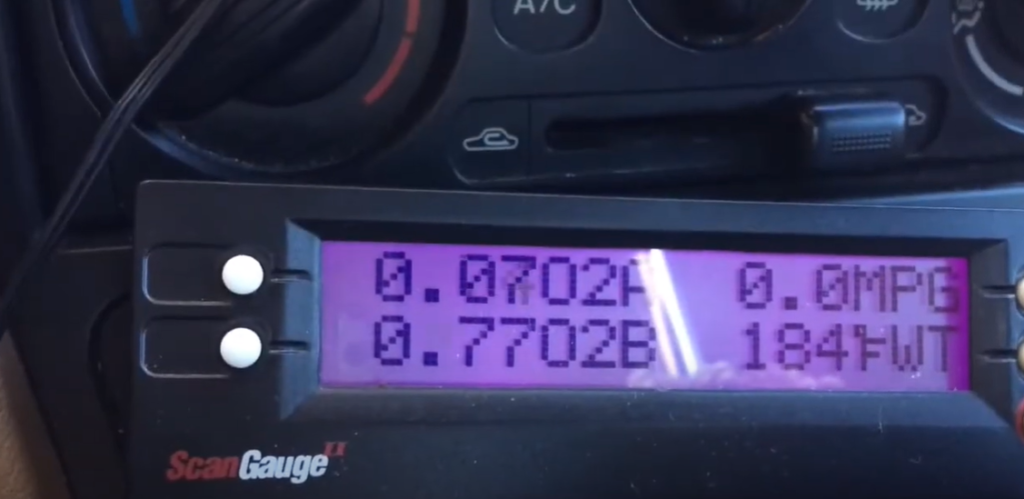
FAQs
Is Bosch and Denso the same?
No, Bosch and Denso are two different companies. Bosch is a German automotive parts supplier while Denso is a Japanese manufacturer. Both brands produce oxygen sensors that are used in modern vehicles to monitor the air/fuel mixture for better engine performance and emissions control. However, each brand may have different specifications or features that make them more suitable for certain applications. It’s important to research the differences between Bosch and Denso oxygen sensors before making a purchase.
Are Bosch O2 sensors good?
Bosch is one of the most trusted brands on the market. They have been producing O2 sensors for more than three decades and have a reputation for durability and accuracy.
Bosch’s oxygen sensors are designed to fit a wide range of automotive applications and are among the highest quality available. Their innovative design helps ensure precise measurements and reliable performance. They are built to meet or exceed all OE specifications, making them ideal for restoring your vehicle’s factory performance levels.
Bosch oxygen sensors come with a limited lifetime warranty, which provides added peace of mind. Their products are designed to keep your engine running smoothly for a long time, backed by their commitment to quality and customer satisfaction.
Replacing your vehicle’s oxygen sensor with a Bosch O2 sensor is an excellent way to improve its performance and fuel economy.
Is Denso a good oxygen sensor?
Yes, Denso is one of the most trusted oxygen sensors on the market. It has been known for its longevity and durability in a wide range of automotive applications. Its robust construction and precision engineering make it a top choice for vehicle performance tuning. The Denso oxygen sensor is capable of accurately measuring both the amount of oxygen in exhaust gasses as well as fuel/air ratios. This makes it ideal for accurately monitoring engine performance and fuel efficiency. Additionally, the Denso oxygen sensor is known to be less prone to failure than other sensors due to its superior build quality and reliable performance in extreme temperatures. All of these factors make the Denso oxygen sensor an excellent choice for anyone looking for a dependable and long-lasting solution.
What is a good brand of O2 sensor?
When looking for an oxygen sensor, it is important to know which brand provides the best performance. Generally, you want to look for a well-known and trusted manufacturer that has been around for years and has a good reputation in the automotive industry. Some of the top brands of O2 sensors include Bosch, Denso, Standard Motor Products (SMP), Delphi, and NTK.
Each brand offers various options in terms of performance and features, so it’s important to research the different types of sensors available from each company before making a decision. Bosch is well-known for their O2 sensors that offer reliable performance and accurate measurements of oxygen content in exhaust gases. Denso also produces high-quality sensors with a wide range of features that make them suitable for use in a variety of vehicles. SMP provides more affordable options, though their sensors may not perform as well as the Bosch or Denso models. Delphi is another top name in sensor manufacturing, providing budget-friendly alternatives to Bosch and Denso products. NTK makes some of the most advanced O2 sensors on the market. They are designed with superior build quality and accuracy, making them a great choice for performance tuning and extreme temperature applications.
Useful Video: Denso vs Bosch o2 2016/01/08
Conclusion
The selection of an oxygen sensor for your vehicle should not be taken lightly. The air quality inside of the vehicle is important for keeping it in its best shape and performance. Always research different manufacturers like Bosch or Denso before deciding which one to purchase. Doing some additional research may help you find cheaper sensors that are able to do the same job as the more expensive versions. By researching and properly locating and replacing oxygen sensors when needed, you will have a vehicle engine running as efficiently as possible – giving you better fuel economy, increased power output, and reduced emissions all at the same time. Be mindful of any warning lights that come up on your dashboard that could indicate a potential problem with your sensors. Take care of your cars and enjoy the improved performance!
References:
- https://www.sciencedirect.com/science/article/abs/pii/S2214785320354894
- https://www.delphiautoparts.com/resource-center/article/making-sense-of-sensors-the-oxygen-sensor
- https://mte-thomson.com/en/produtosmte/oxygen-sensor/
- https://partsavatar.ca/ultimate-oxygen-sensor-buying-guide
- https://www.buyautoparts.com/blog/oxygen-sensor-buyers-guide/
- http://alflash.com.ua/for/section_A.pdf
- https://carbasicsdaily.com/comparing-bosch-vs-denso-oxygen-sensors/
- https://toolingfun.com/bosch-vs-denso-oxygen-af-sensors-review/
- https://rxmechanic.com/oxygen-sensors/
- https://www.densoautoparts.com/oxygen-af-sensors-oxygen-sensors/
- https://www.jdpower.com/cars/shopping-guides/when-should-the-oxygen-sensor-be-replaced





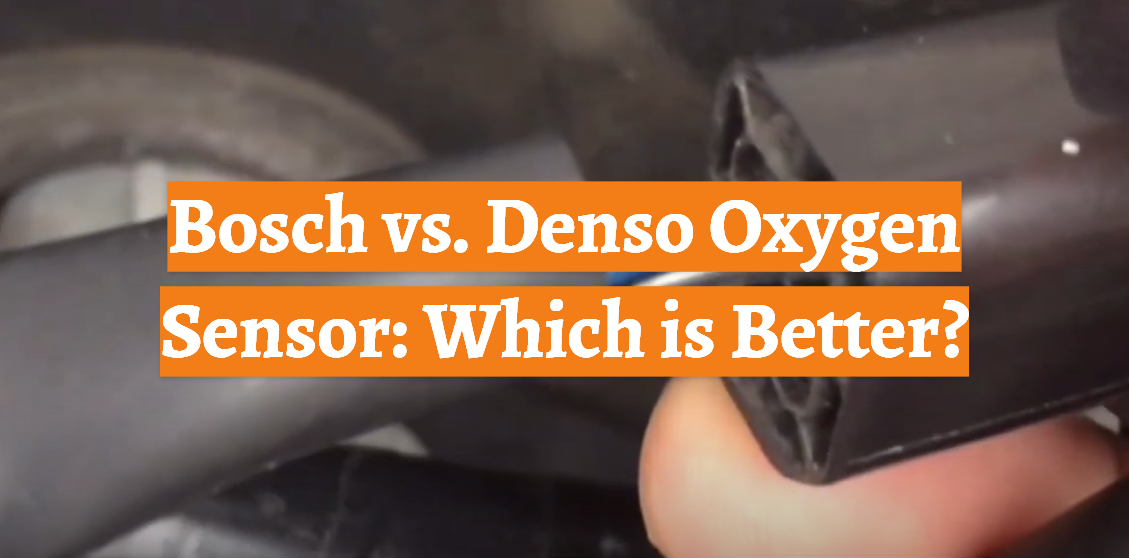
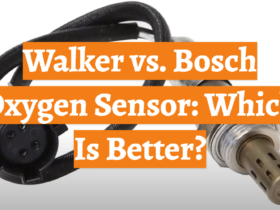
Leave a Review